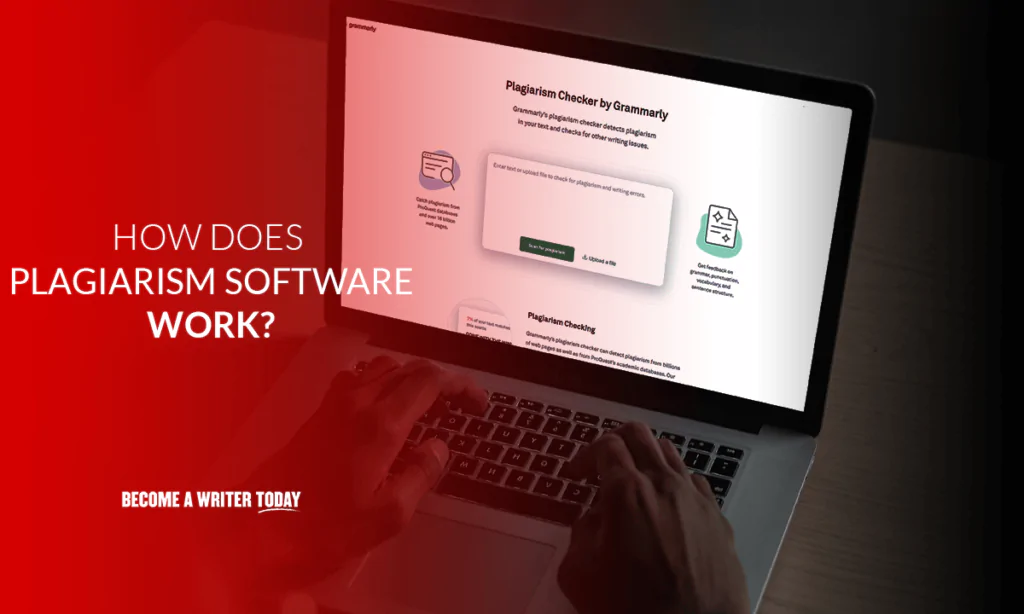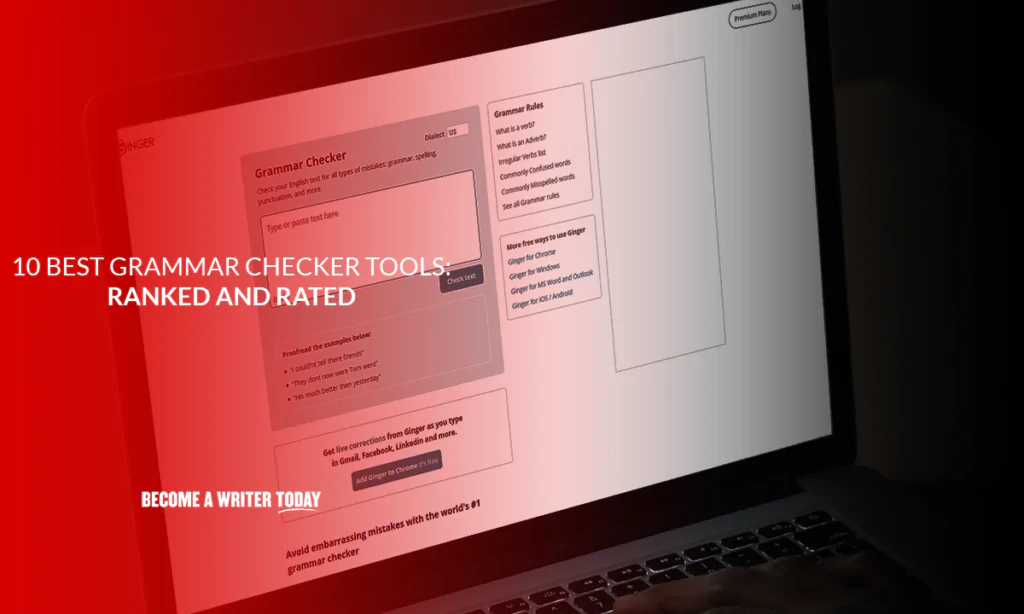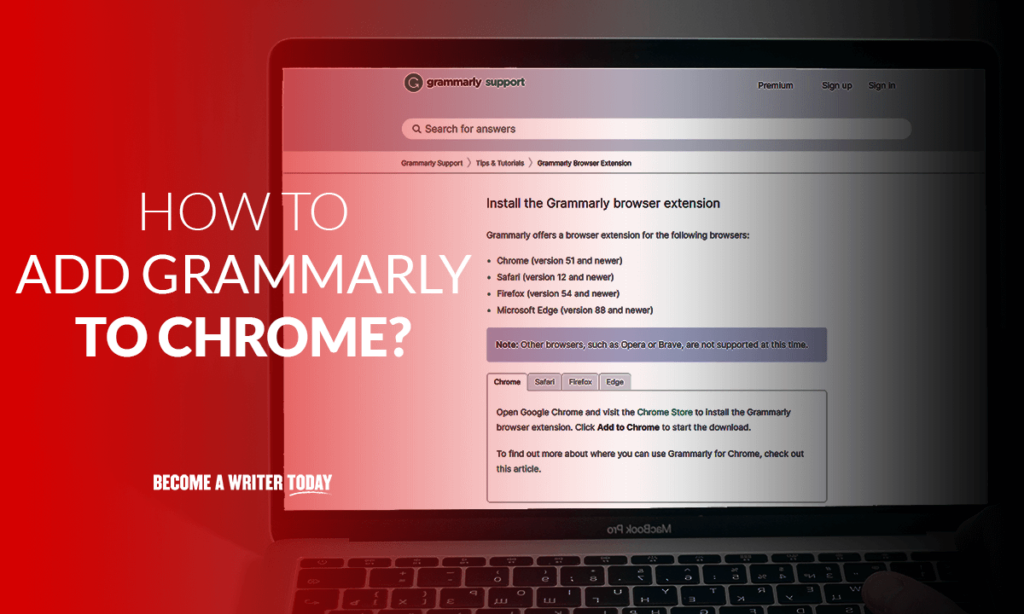Want to Write Online?
As Seen On

Writing Software Reviews
We try and test the best writing software and apps. Read some of our popular reviews.
Writing Resources
Watch, listen and learn from podcasts, videos and courses about the craft of writing from Become a Writer Today.
YouTube
Watch our videos packed full of writing advice, software reviews, tips, interviews, and book-round-ups on our channel. ⏯️
Courses
Get help with writer’s block, self-publishing, and earning more money as a writer in these popular courses. ✍️
Podcast
Listen to interviews with New York Times best-selling authors and other top writers. Get practical advice that works. 🎧
Writing Blog and News
Our team of expert writers publishes practical advice about the craft of writing.
How to Add Grammarly to Chrome in 5 Easy Steps
Learn how to add Grammarly to Chrome in this easy-to-follow guide. One of Grammarly’s features…
The 4 Most Famous Moleskine Users
Many famous people have used the type of notebook that inspired the Moleskine brand, including these…
How To Write About Yourself: Step-by-Step
This step-by-step process will take the pressure out of writing about yourself. “Tell me a…
10 Best Portuguese Authors Of All Time
Are you interested in learning more about different types of literature? Take a look at…
14 Authors From the Harlem Renaissance: A Concise Overview
Discover our top list of authors from the Harlem Renaissance in this article. The Harlem…
12 Best Greek Authors Of All Time
Here, we’ll explore the top Greek authors of short stories, epic poems, tragedies, and more….

Writing Advice That Works
Our team has written thousands of articles covering all types of writing, book genres, niches, tools, famous authors, and the written word. You can start your writing journey today.

Need Writing Software?
We regularly review and profile the best writing tools, apps, grammar checkers, and AI writing software, so you can find one that works best.

Great Books
Our team of writers has read and reviewed the best books and authors across various genres. Never run out of items for your reading list.








